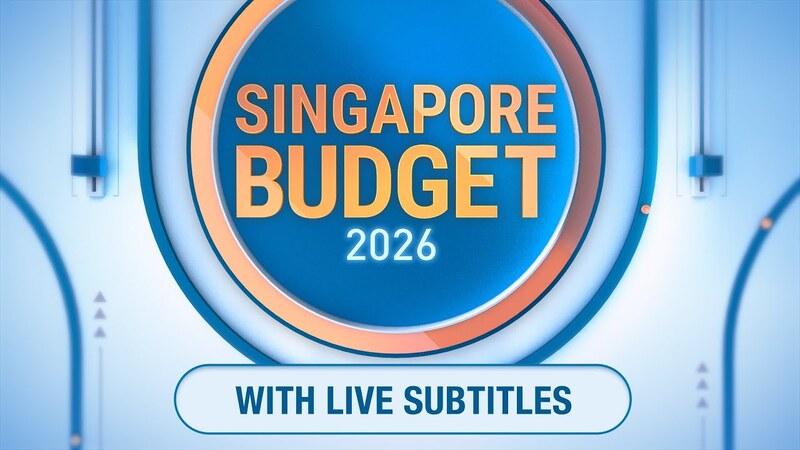DBS PayLah! $3 Hack: What It Tells Us About Gen Z Workers, Gig Hustles & Financial Wellness in Singapore
If you’ve noticed long queues at convenience stores or cashless transactions spiking lately, you might’ve heard the buzz around DBS PayLah!’s $3 cashback rewards. Designed as a micro-incentive to drive app usage, this seemingly small campaign offers big insights into how Gen Z workers, gig economy players, and younger jobseekers think about money. And for companies, this trend might hold the key to improving employee financial wellness and retention.
What’s the DBS PayLah! $3 Hack All About?
Here’s how it works: spend a minimum amount (usually $3 or more) at participating hawker stalls, 7-Eleven outlets, or select F&B merchants using DBS PayLah!, and you get $3 cashback credited into your account—no strings attached.
This initiative is part of DBS’s broader effort to promote cashless payments, especially among younger, tech-savvy consumers who are highly cost-conscious.
And it’s working. DBS PayLah! now has over 2 million users in Singapore, with many of them aged 16–35, according to DBS’s latest usage data. On TikTok, hashtags like #paylahhack and #dbsrewards are trending among students, gig workers, and even junior executives.
What This Reveals About Young Workers’ Financial Mindsets
For younger professionals and gig workers in Singapore, every dollar counts. Many are:
- Managing side hustles like tutoring, delivery, or freelance design
- Navigating rising living costs amid inflation and rent hikes
- Seeking flexible, digital-first payment solutions
The $3 reward might seem minor, but to a student earning $10 an hour from a part-time gig or a delivery rider managing daily fuel costs, this translates to a meaningful benefit. It also highlights a broader shift in how Singapore’s Gen Z workforce thinks about:
- Financial autonomy: Micro-rewards and cashback apps provide a sense of control.
- Instant gratification: Incentives like this tap into real-time reward psychology.
- Digital-first preferences: Mobile wallets, QR payments, and gamified finance tools are their norm.
Implications for Employers: Why Financial Wellness Matters
A recent OCBC Financial Wellness Index showed that 46% of working adults under 35 in Singapore feel they are not saving enough, while 1 in 3 gig workers feel financially insecure.
This opens up opportunities for companies to step in:
- Offer financial literacy workshops to help staff better manage income, CPF, and debt
- Implement micro-benefits like meal or transport allowances tied to digital wallets
- Support salary-on-demand options that allow workers to cash out wages weekly or bi-weekly
These steps are particularly relevant for industries employing many gig, part-time, or entry-level workers—such as F&B, logistics, and retail.
Beyond Cashback: Building Meaningful Employer Brands
Today’s talent—especially those entering the workforce—is looking for employers that understand their realities. Supporting small wins like transport subsidies, flexible payroll, or even partnerships with platforms like DBS PayLah! can position your company as:
- Digitally aligned with worker habits
- Empathetic to cost-of-living pressures
- Committed to workforce well-being
In turn, this can boost retention, loyalty, and employer brand equity—particularly among younger, high-turnover staff segments.
FAQs: DBS PayLah!, Gen Z & Financial Wellness
Q1: Why are so many young workers using DBS PayLah!?
It’s fast, secure, and offers real-time perks like cashback and merchant deals—making it ideal for digitally-native users.
Q2: How does this tie into the gig economy?
Many gig workers operate on tight margins. Cashback tools, instant payments, and mobile finance apps support their need for real-time control.
Q3: Can employers integrate this into workplace benefits?
Yes. Employers can offer small-value reimbursements, transport/top-up credits, or e-wallet incentives to align with worker spending habits.
Q4: What does this teach us about younger jobseekers?
They value flexibility, transparency, and financial empowerment—traits that also influence their job selection.
Q5: How can Reeracoen help?
We help companies better understand and engage younger talent pools while matching jobseekers with employers that align with their values.
Looking to Attract and Retain Gen Z Talent?
Let Reeracoen Singapore help you create a workplace that supports the next generation.
👉 Hire with Reeracoen Singapore
Searching for a Job That Matches Your Lifestyle?
We’ll help you find employers who understand today’s financial realities.
👉 Explore Jobs in Singapore
Disclaimer:
The information provided in our blog articles is intended for general informational purposes only. It is not a substitute for professional advice and should not be relied upon as such.
While we strive to provide accurate and up-to-date information, the ever-evolving nature of certain topics may result in content becoming outdated or inaccurate over time. Therefore, we recommend consulting with qualified professionals or experts in the respective fields for specific advice or guidance. Any actions taken based on the information contained in our blog articles are solely at the reader's discretion and risk. We do not assume any responsibility or liability for any loss, damage, or adverse consequences incurred as a result of such actions.
We may occasionally provide links to external websites or resources for further information or reference. These links are provided for convenience and do not imply endorsement or responsibility for the content or accuracy of these external sources. Our blog articles may also include personal opinions, views, or interpretations of the authors, which do not necessarily reflect the views of our organisation as a whole. We encourage readers to verify the accuracy and relevance of information presented in our blog articles and to seek professional advice when needed. Your use of this website and its content constitutes acceptance of this disclaimer.
References





